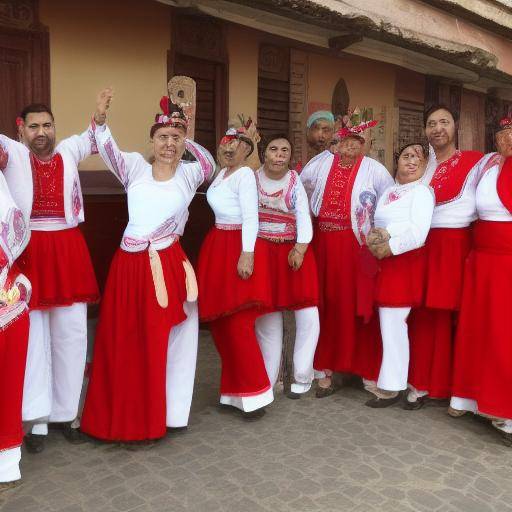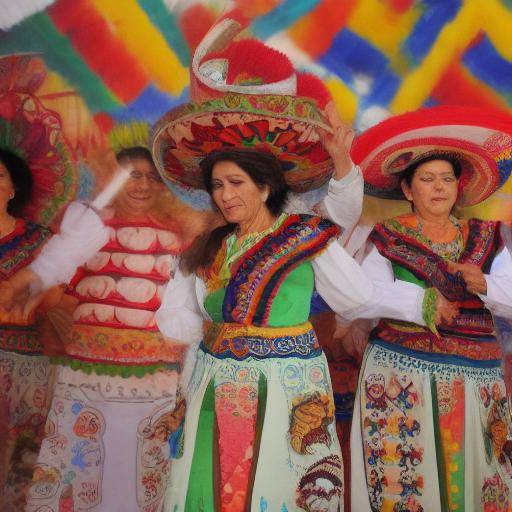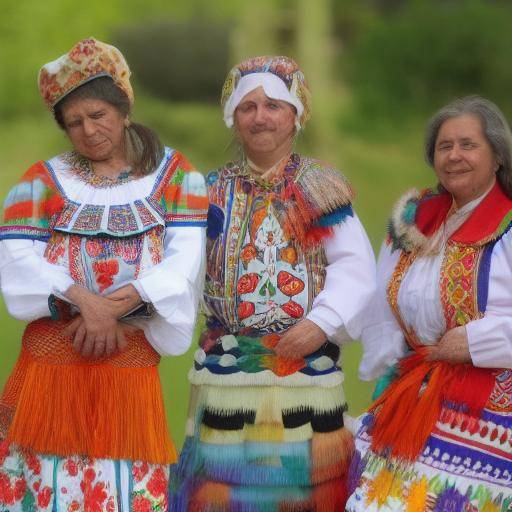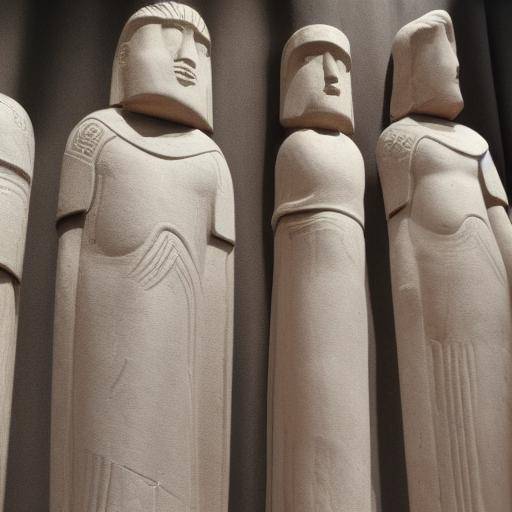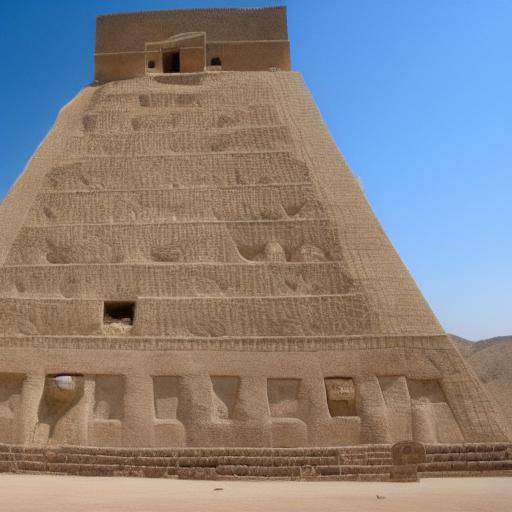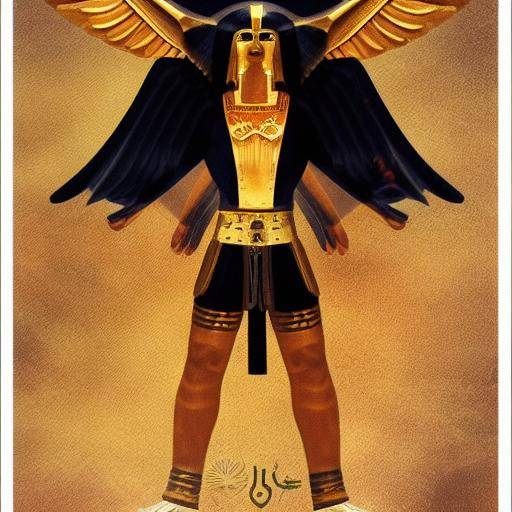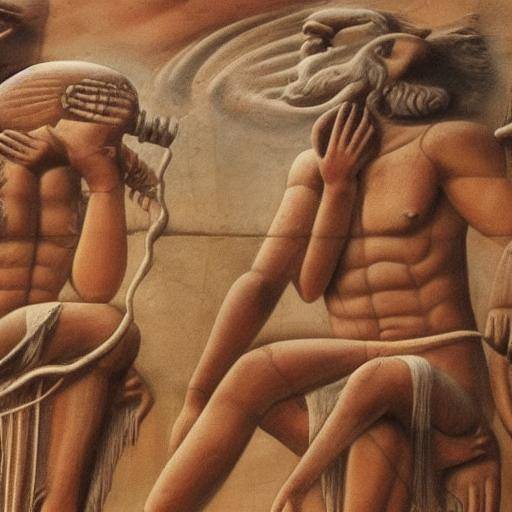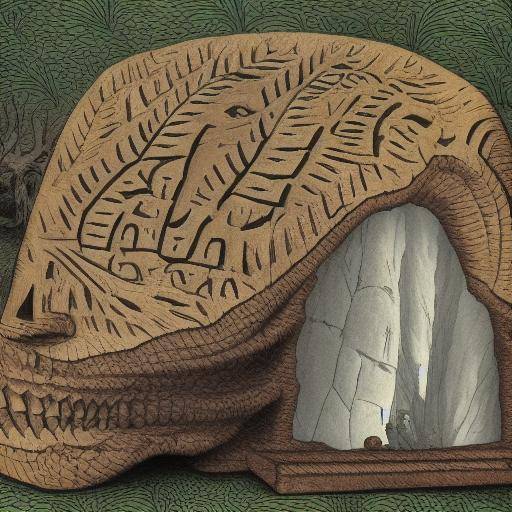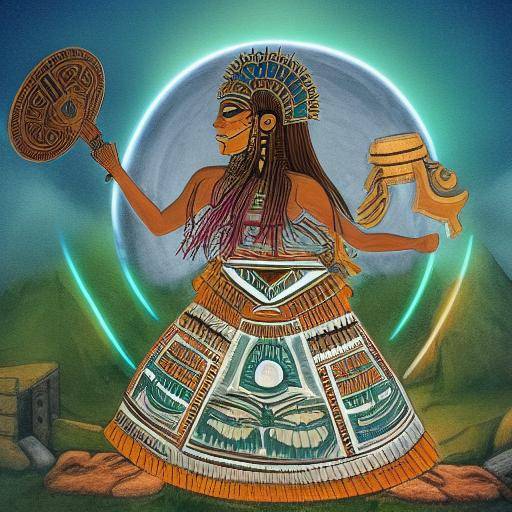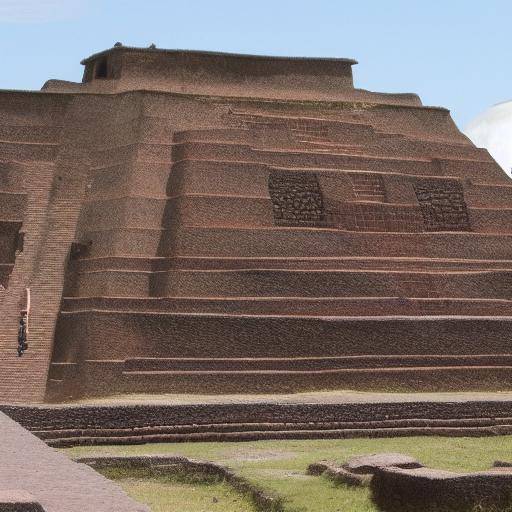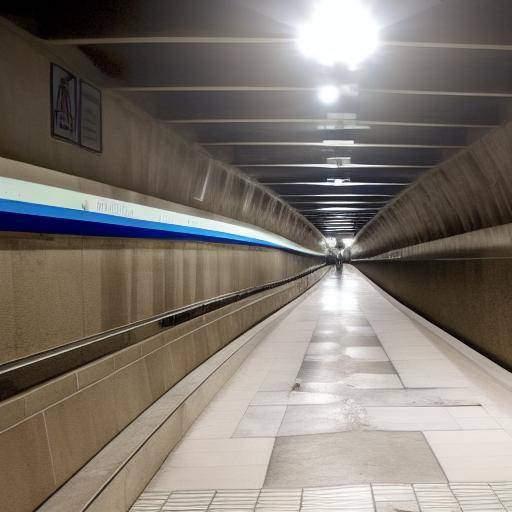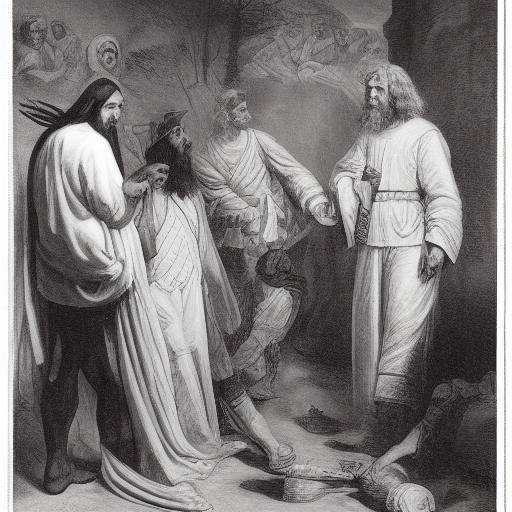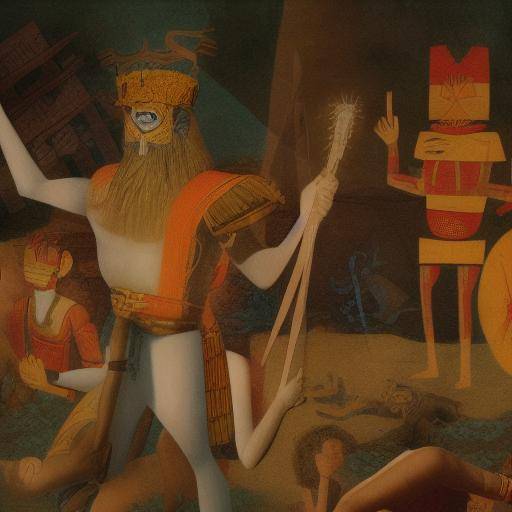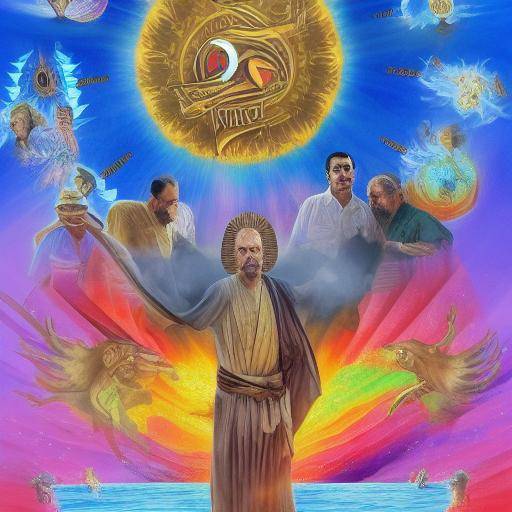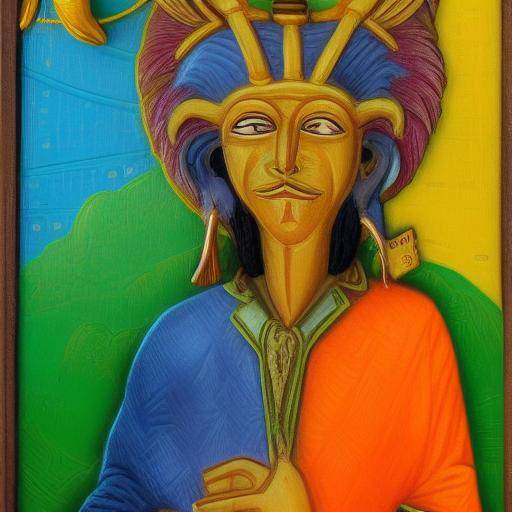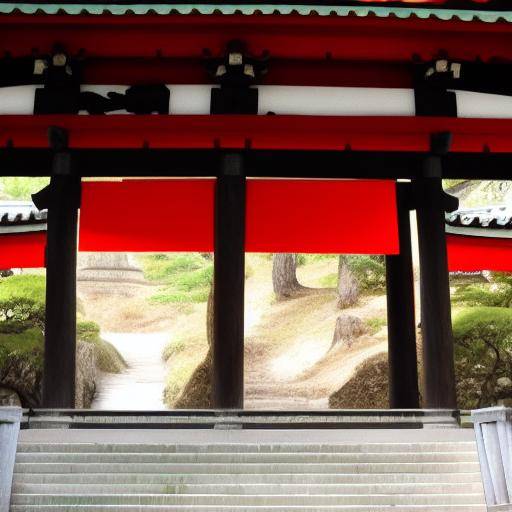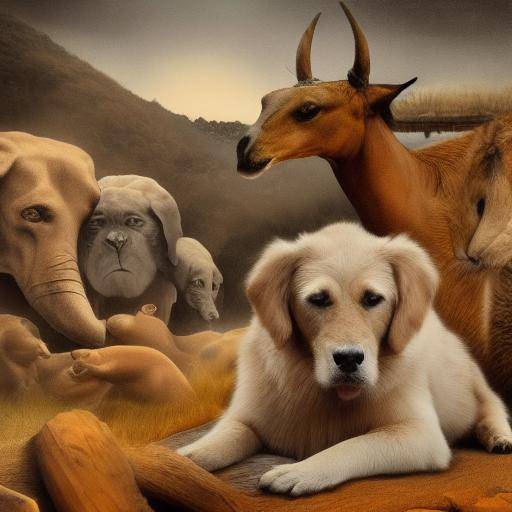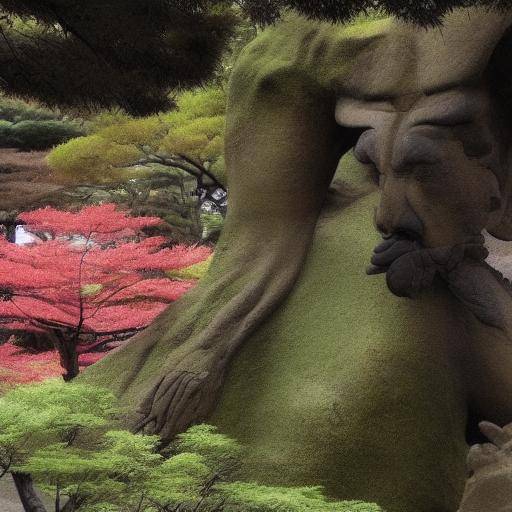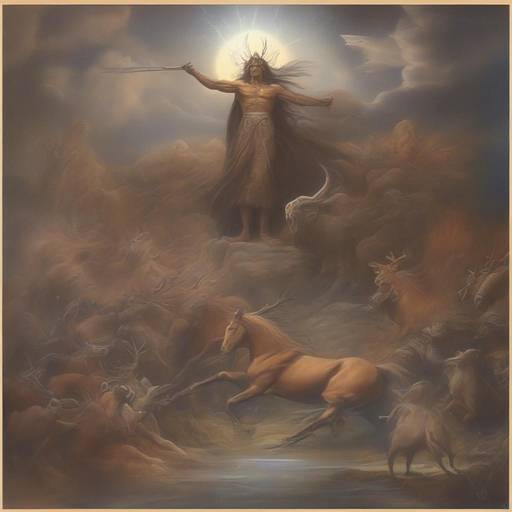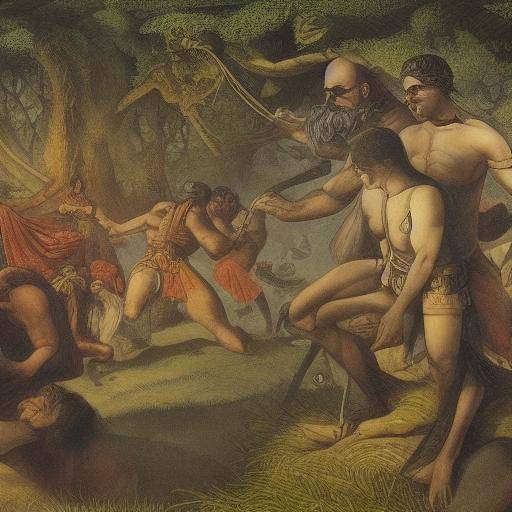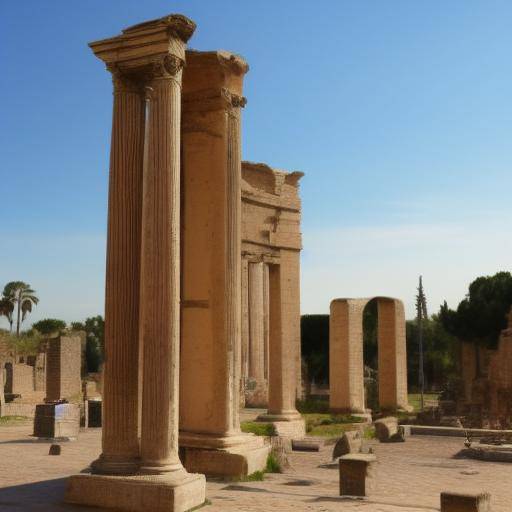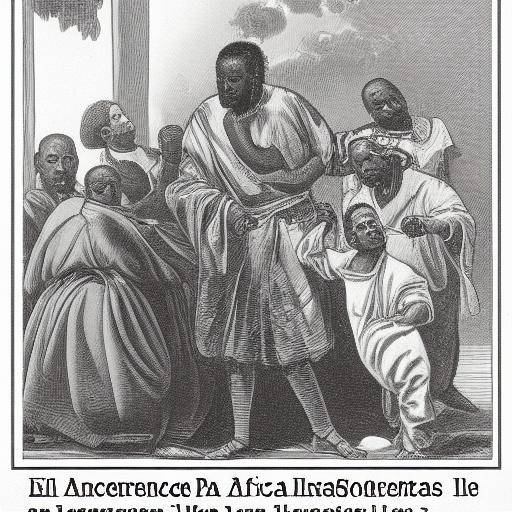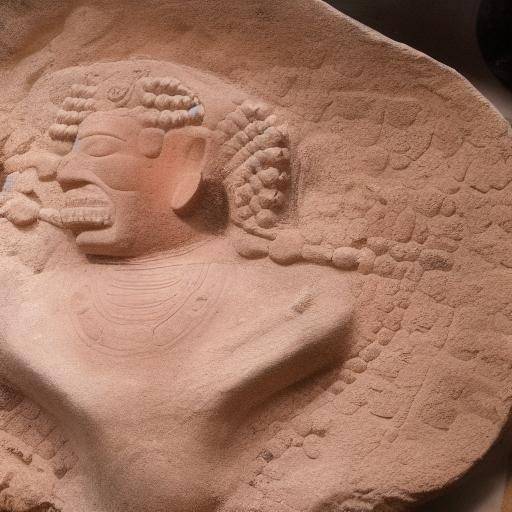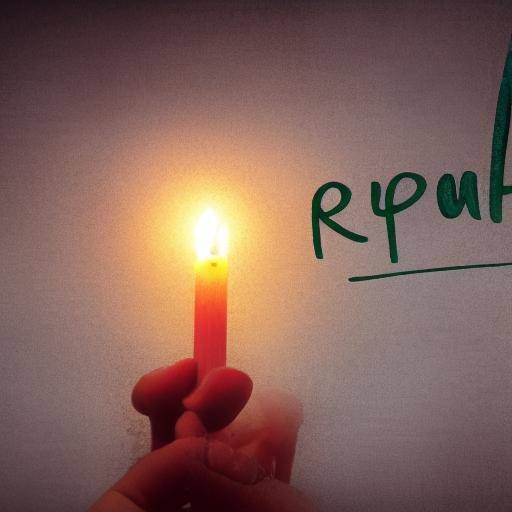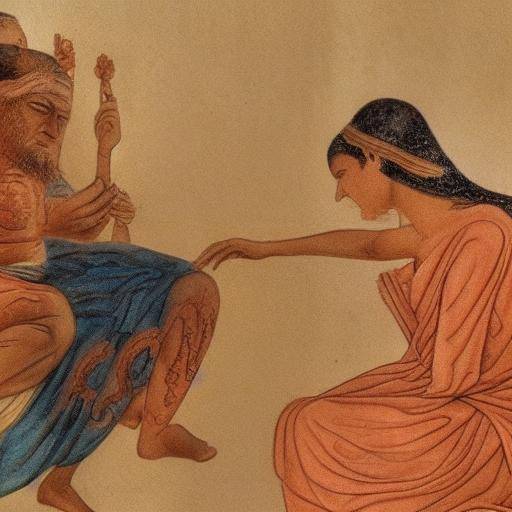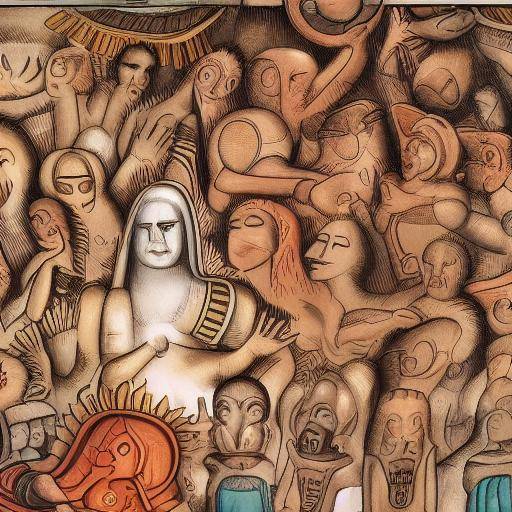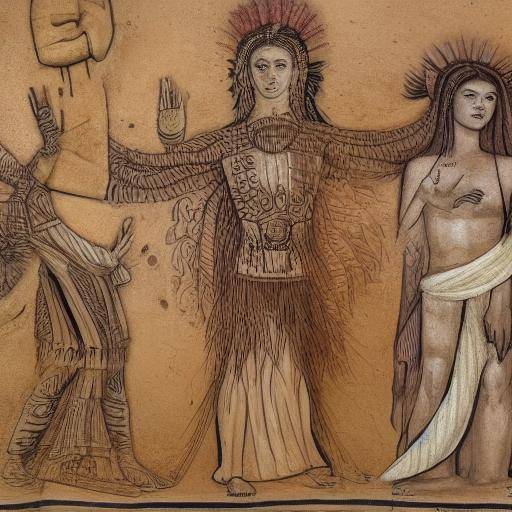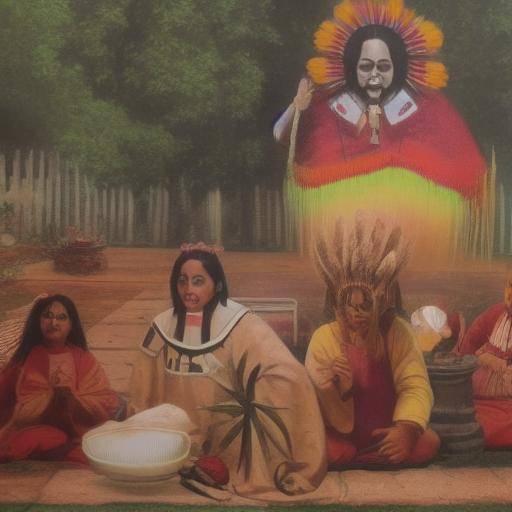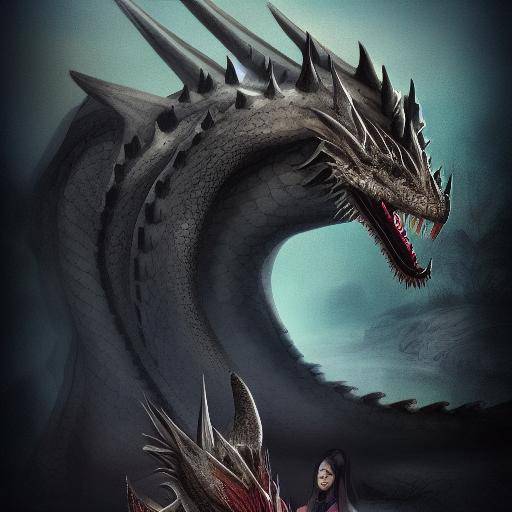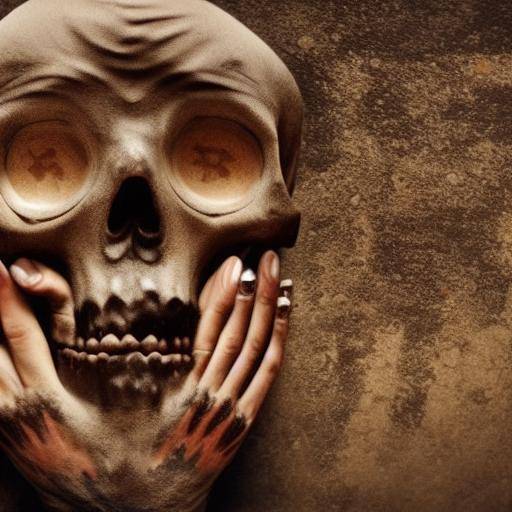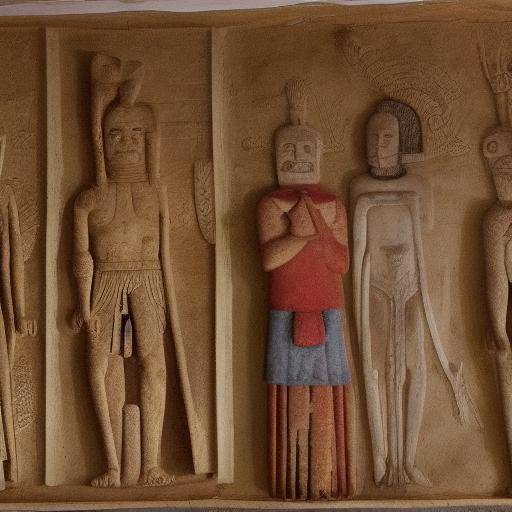
Egyptian mythology is known for its elaborate funeral rites that reflected the deep beliefs of the ancient Egyptians in life after death. In this article, we will explore in detail the funeral rites in Egyptian mythology, its meaning, and how these beliefs shaped the society and culture of that time.
Introduction
In ancient Egyptian civilization, death was seen as a transit into a new form of existence. Funeral rites played a crucial role in preparing the deceased for their journey to the beyond, and were impregnated with deep religious beliefs.
In this article, we will delve into funeral rites in the context of Egyptian mythology, exploring its origins, evolution throughout history, symbolism, and the influence it still exerts today.
History and Background
Funeral rites in Egyptian mythology go back thousands of years, to the first dynasties of ancient Egypt. At that time, life after death was believed to be a vital aspect of the cycle of existence, and therefore funeral rites were intricate and significant.
Origins and Evolution
The origins of Egyptian funeral rites date back around 3000 BC during the predynatic period. At that time, the Egyptians buried their dead in shallow pits with domestic utensils and tools for hunting and agriculture, believing that these possessions would be necessary in future life.
Over time, these rites evolved to include the process of embalming and burying the deceased with protective amulets, as well as with a set of religious texts known as “Books of the Dead”.
Symbolism and Meaning
Funeral rites in Egyptian mythology were imbued with a rich symbolism that reflected the beliefs of Egyptian society about life, death, and beyond. The process of embalming, for example, symbolized the preservation of the integrity of the body for future life, while the amulets and inscriptions in the graves sought to protect the deceased on his journey to the other life.
Analysis in Deep
The funerary rites of Egyptian mythology present a rich source of analysis from various perspectives. From a historical point of view, these rites reveal the complex relationship of the Egyptians with death and life after it. In addition, from a religious perspective, funeral rites offer a window to beliefs about final judgment and resurrection.
Benefits and Challenges
Throughout history, Egyptian funeral rites have provided a unique understanding of religious beliefs and the worldview of ancient Egyptian civilization. However, they also pose challenges in terms of interpretation, as the current understanding of these rites is often conditioned by the filter of modern interpretations.
Current trends
Today, the study of Egyptian funeral rites remains an active field of research for Egyptologists and academics. Advances in conservation technology and archaeology have allowed a greater understanding of funeral rituals and their meaning for the Egyptian society of antiquity.
Comprehensive review
Funeral rites in Egyptian mythology offer a unique window to an ancient society and its beliefs about life after death. This comprehensive examination brings us into the understanding of funeral rituals, their cultural significance, and their impact on Egyptian civilization.
Comparative analysis
Comparatively, funeral rites in Egyptian mythology exhibit similarities and differences with other funerary belief systems, such as those practiced in ancient Greece or Chinese culture. Despite differences, all these rites share the intention of preparing the deceased for a new form of existence after death, as well as the desire to honor and remember the deceased.
Practical Tips and Accessible Tips
In exploring funeral rites in Egyptian mythology, it is important to understand the contemporary relevance of these rituals. Although modern funeral practices differ to a large extent from ancient Egyptian customs, understanding of the importance of ritual and funerary symbolism can provide valuable insights into mourning and the farewell process at present.
Here are some practical tips that can be extracted from Egyptian funeral rites:
- Honor the Memory: Learning from Egyptian belief that remembering the deceased is fundamental to their future life, can inspire people to honor the memory of their loved ones in a meaningful way.
- Recognizing the Transition: The Egyptian notion of preparing the deceased for his journey to the beyond can offer comfort to those facing the loss, providing a framework for understanding the transition of the loved one to another form of existence.
- Using Symbolism: Symbolism in Egyptian funeral rites can inspire the creation of personalized and meaningful rituals at contemporary funerals, providing comfort and healing to those who participate in them.
Industry Perspectives and Expert Reviews
The scholars of egyptology and archaeology continue to provide new perspectives on funeral rites in Egyptian mythology, enriching our understanding of this fascinating aspect of ancient Egyptian civilization. His experience and knowledge offer an invaluable insight into the relevance and meaning of funeral rituals in the historical and contemporary context.
Case Studies and Real Life Applications
The study of Egyptian funeral rites offers us fascinating examples of how funeral beliefs and practices can provide a unique vision of ancient societies, as well as a profound understanding of spirituality and beliefs about life after death.
Future Trends and Predictions
The study of funeral rites in Egyptian mythology remains an evolving field, with new research and discoveries that continually enrich our understanding of the funeral practices of ancient Egyptian civilization. Current perspectives point to a greater emphasis on understanding the cultural and spiritual meaning of these rites, as well as the search for parallels with contemporary funeral practices.
Conclusion
Funeral rites in Egyptian mythology offer a unique window to the beliefs, traditions and worldview of one of the most fascinating civilizations in history. By exploring the symbolic wealth and meaning of these rituals, we enter into a deeper understanding of life, death and our beliefs about what lies beyond.
Frequently asked questions
What was the main purpose of funeral rites in Egyptian mythology?
The Egyptian funeral rites had as their main objective to prepare the deceased for his journey to the future, protecting his integrity and ensuring a safe transition to the beyond.
What was the role of embalming in Egyptian funeral rites?
Embalsamation played a crucial role in Egyptian funeral rites, as it was believed that preserving the body of the deceased was essential to its future existence.
How do Egyptian funeral rites compare with contemporary funeral practices?
Although Egyptian funeral rites differ greatly from contemporary funeral practices, they both share the intention of honoring and remembering the deceased, as well as providing comfort to those facing the loss.
What did amulets and inscriptions mean in the Egyptian tombs?
The amulets and inscriptions in the Egyptian tombs were intended to protect the deceased on his journey to the future, offering him security and assistance in the beyond.
How have Egyptian funeral rites influenced contemporary beliefs about life after death?
Egyptian funeral rites have left a lasting impact on contemporary beliefs about life after death, influencing how diverse cultures understand and face the process of death and mourning.
What archaeological evidence supports our current understanding of Egyptian funeral rites?
Archaeological evidence, including tombs, inscriptions, funeral objects and textiles, has provided valuable information on funeral rites in Egyptian mythology, enriching our understanding of these ancestral practices.
What is the contemporary relevance of funeral rites in Egyptian mythology?
Although contemporary funeral practices differ greatly from Egyptian funeral rites, understanding of the importance of ritual and funerary symbolism can provide valuable insights into mourning and the farewell process at present.
Conclusion
Funeral rites in Egyptian mythology continue to fascinate researchers and enthusiasts of ancient history equally, offering a unique view of the beliefs, traditions and practices of one of the most influential civilizations in the past. Studying these rituals not only enriches our understanding of the ancient world, but also offers us deep insights into our own relationship with death, mourning and life after loss.
As we continue to explore the rich legacy of funeral rites in Egyptian mythology, we find that these ancient practices still resonate in our contemporary understanding of life, death and our eternal pursuit of meaning beyond physical existence.

